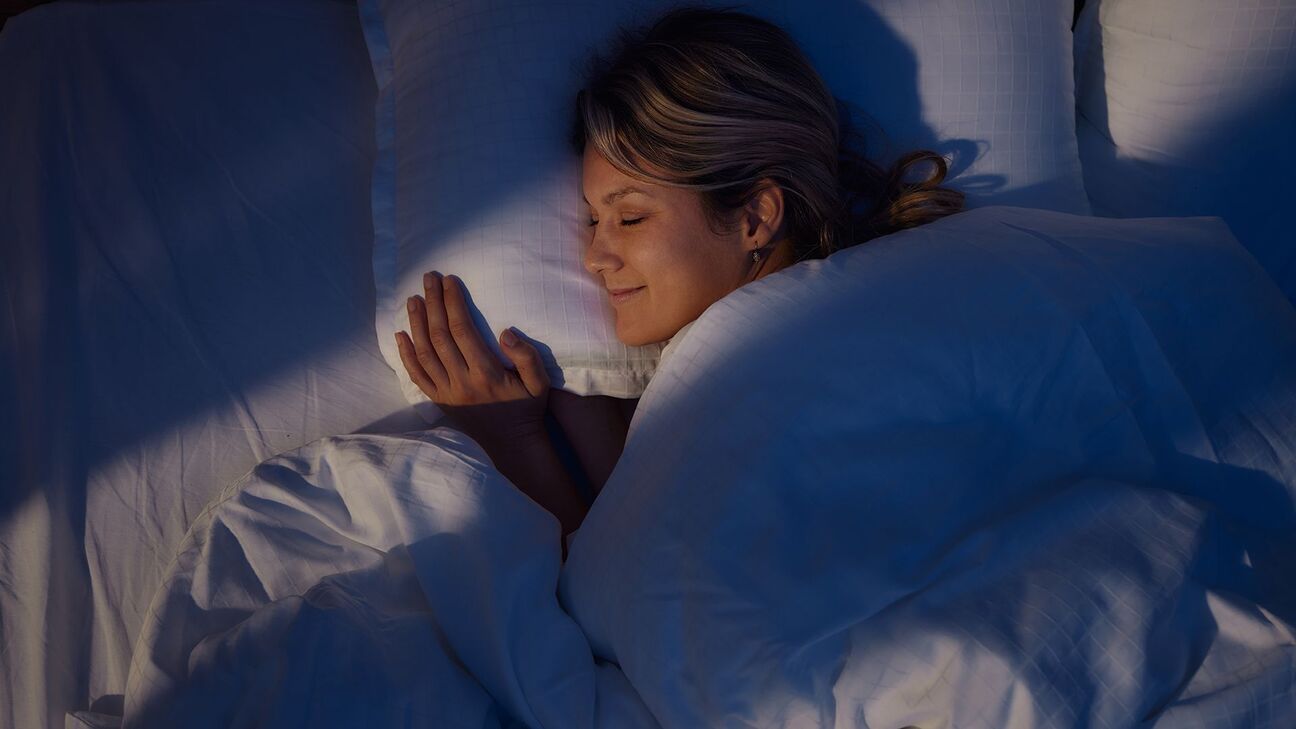Evidence Based
This article relies on solid scientific evidence, authored by experts, and thoroughly fact-checked by specialists.
Our team of licensed nutritionists and dietitians strives to maintain objectivity, impartiality, and honesty. We aim to present a fair representation of both sides of the argument.
Scientific references are included throughout this article. The numbers in parentheses (1, 2, 3) are clickable links to peer-reviewed scientific papers. These sources further support the information provided.

We live in a world filled with noise, from the hum of traffic to the buzz of electronics. Getting a good night’s sleep can be a challenge, especially if you’re sensitive to noise or live in a noisy environment. Many people turn to earplugs as a solution, but there’s often a lingering question: Is sleeping with earplugs safe? In this comprehensive guide, we will delve into the world of earplugs and sleep to explore their safety, benefits, and potential drawbacks.
Introduction
Sleep is essential for our physical and mental well-being. Lack of quality sleep can lead to a range of health problems, from increased stress levels to decreased cognitive function. Noise disturbances during sleep are a common problem, and using earplugs is a popular method to combat this issue. But are there any risks associated with using earplugs while sleeping? Let’s find out.
Understanding Noise and Sleep
Before we dive into the safety of sleeping with earplugs, it’s important to understand how noise impacts sleep. Noise can disrupt different stages of sleep, including:
- Light Sleep: Noise can easily awaken individuals in lighter sleep stages, preventing them from transitioning into deeper, more restorative sleep.
- REM Sleep: Rapid Eye Movement (REM) sleep, which is crucial for memory consolidation and emotional regulation, is particularly vulnerable to noise disturbances.
- Sleep Fragmentation: Frequent interruptions from noise can lead to fragmented sleep, reducing the overall quality of rest.
Now that we understand the importance of uninterrupted sleep, let’s explore the safety aspects of using earplugs.
Summary
Noise disruptions during sleep can affect various sleep stages, leading to fragmented and lower-quality rest.
The Safety of Sleeping with Earplugs
1. Earplug Materials
Earplugs are typically made from soft materials such as foam, silicone, or wax. These materials are generally safe for use in the ear canal, provided they are used correctly. It’s crucial to follow the manufacturer’s instructions for inserting and removing earplugs to prevent any potential harm.
2. Allergies and Irritation
Some individuals may be sensitive or allergic to certain earplug materials. If you experience any discomfort, itching, or redness in your ears after using earplugs, discontinue use immediately and consult a healthcare professional.
3. Ear Infections
In rare cases, improper use or dirty earplugs can contribute to ear infections. To prevent this, clean reusable earplugs regularly and replace disposable ones as recommended by the manufacturer.
4. Earwax Buildup
Frequent use of earplugs may push earwax deeper into the ear canal, potentially leading to earwax impaction. It’s essential to maintain good ear hygiene and seek medical attention if you experience symptoms like hearing loss, earache, or tinnitus.
5. Tinnitus
Tinnitus is a condition characterized by the perception of ringing or buzzing in the ears. While earplugs can protect against noisy environments, they can also contribute to tinnitus if used excessively or improperly.
6. Risk of Dependency
Some individuals may become dependent on earplugs to fall asleep, which could make them less tolerant of natural environmental sounds over time.
Summary
Sleeping with earplugs can be safe if used correctly, but potential issues like allergies, ear infections, and dependency should be considered and managed.
The Benefits of Using Earplugs for Sleep
Scientific research indicates that using earplugs is a safe and cost-effective method for enhancing the quality of sleep (1
PubMed Central
Highly respected database from the National Institutes of Health
Go to source ).
In certain instances, the utilization of earplugs, in conjunction with eye masks, has been shown to augment the duration of rapid eye movement (REM) sleep (2
PubMed Central
Highly respected database from the National Institutes of Health
Go to source ).
While there are potential safety considerations, using earplugs for sleep offers numerous benefits:
1. Improved Sleep Quality
The primary benefit of using earplugs is the potential for improved sleep quality. By reducing or blocking out external noise, you can enjoy uninterrupted, deeper sleep.
2. Increased Focus and Productivity
Better sleep quality translates to improved daytime alertness, concentration, and overall productivity. You’ll be better equipped to tackle daily tasks and challenges.
3. Stress Reduction
A quieter sleep environment can lead to reduced stress levels, as noise-induced sleep disturbances are known to increase stress hormones like cortisol.
4. Enhanced Mental Health
Quality sleep plays a vital role in maintaining good mental health. By using earplugs to improve your sleep, you may also support your emotional well-being.
5. Compatibility with Sleep Hygiene
Earplugs are often recommended as part of a sleep hygiene routine, which includes creating an optimal sleep environment to promote restful sleep.
Tips for Safe Earplug Use
To maximize the benefits of earplugs while minimizing potential risks, follow these safety tips:
- Choose the Right Type: Select earplugs made from materials that suit your comfort and needs.
- Proper Insertion: Ensure you insert earplugs correctly to create an effective seal without pushing them too deep into the ear canal.
- Cleanliness: Keep reusable earplugs clean by washing them regularly, and replace disposable ones as needed.
- Limit Use: Avoid using earplugs every night to prevent dependency and potential complications.
- Consult a Professional: If you experience any ear-related discomfort or issues, consult an audiologist or healthcare provider.
Conclusion
Sleep is a precious resource that should not be compromised by external noise disturbances. While the use of earplugs for sleep can offer many benefits, it’s essential to balance these advantages with potential safety considerations. By choosing the right type of earplugs, using them correctly, and maintaining good ear hygiene, you can enjoy the peaceful sleep you deserve without compromising your health. Remember, the key is moderation and mindfulness in your approach to using earplugs for a sound and restful night’s sleep.




